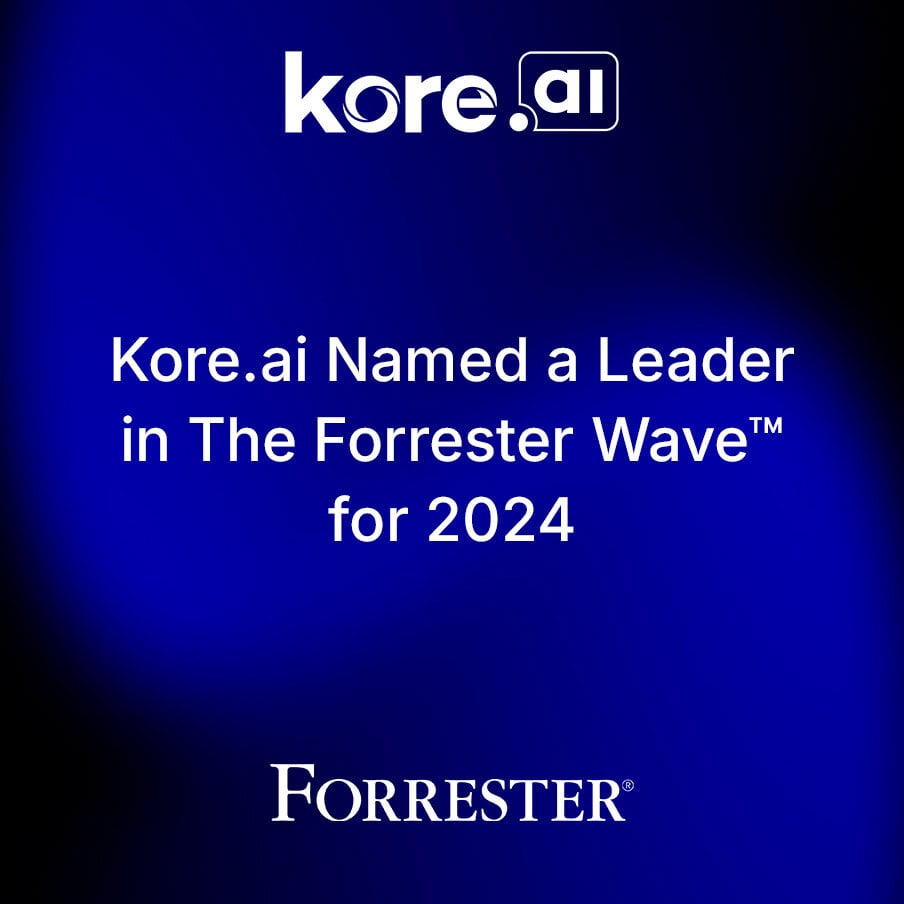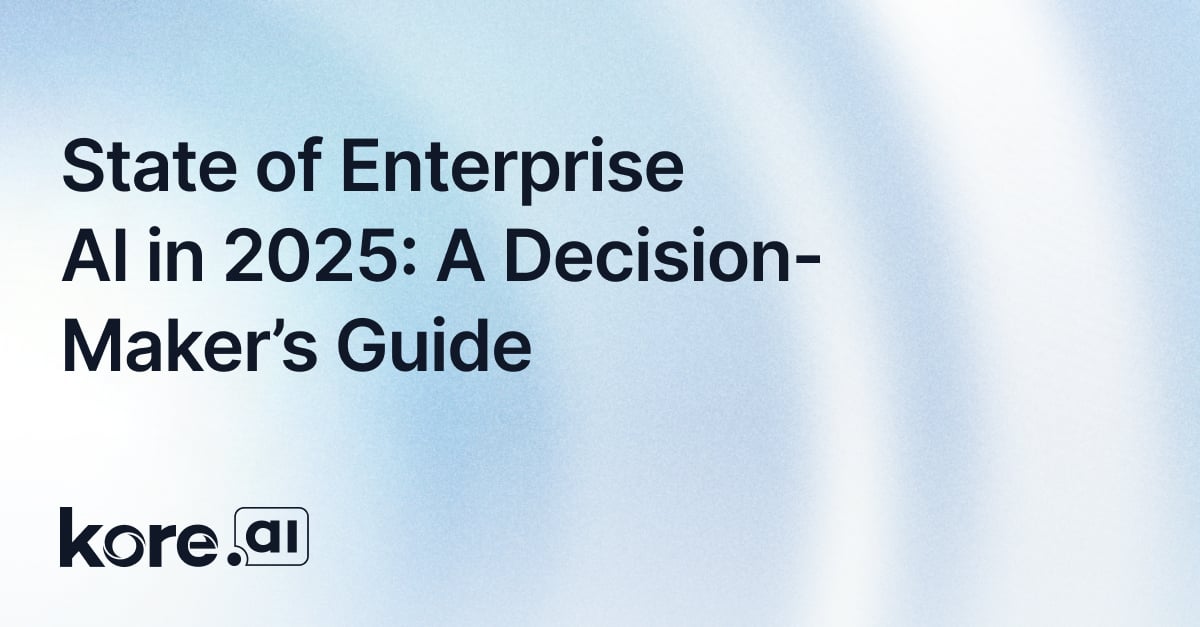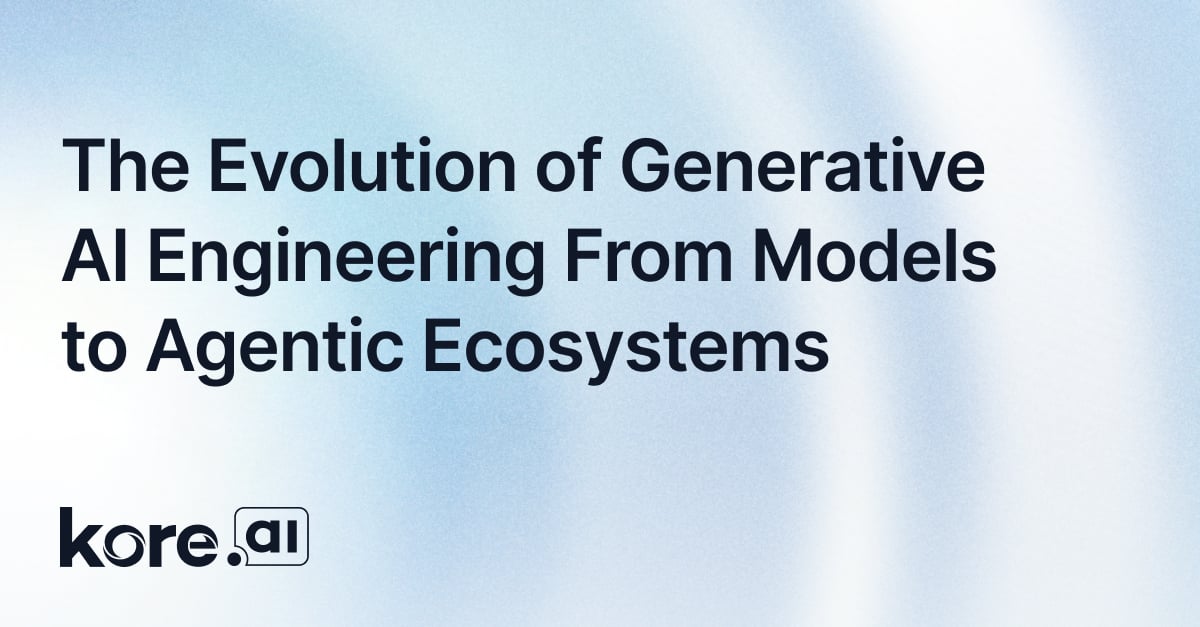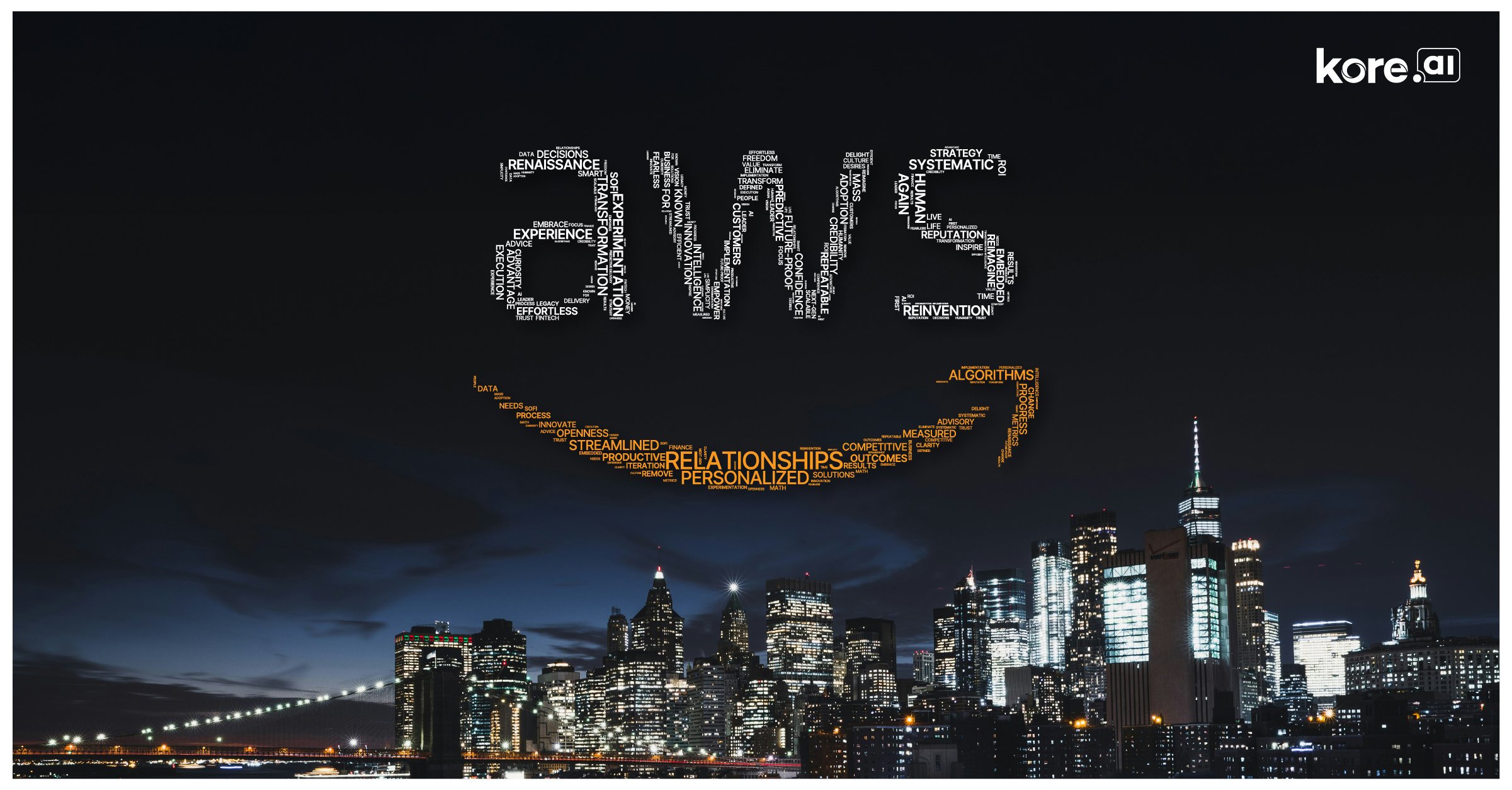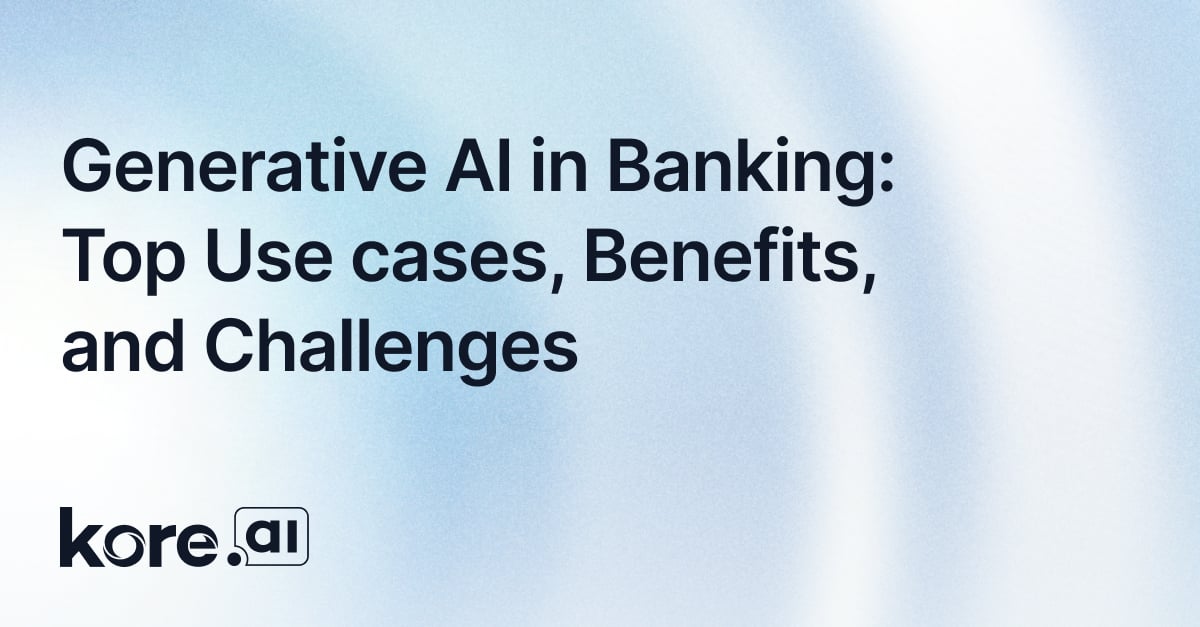AI agents help enterprises streamline operations and scale sustainably
For most enterprises today, the challenge isn’t growth – it’s scaling efficiently while managing complexity, rising costs, and a workforce stretched to its limits. Traditional levers like hiring more people or outsourcing are hitting their ceiling. At the same time, customer expectations are accelerating, internal processes are becoming harder to manage, and digital transformation fatigue is setting in.
And the truth is that the current operating model can’t keep up. That’s why enterprise leaders are now turning to a new kind of workforce – not just automation, but intelligent, task-driven AI agents that can take on work like a team member, not just a tool.
Gartner predicts that by 2028, a third of all enterprises will be using agentic AI to drive core operations. Early adopters are already seeing tangible impact, like leaner teams, faster workflows, lower overhead, and smarter decisions.
In this blog, we will see what AI agents are and how they can help your enterprise scale effectively.
Key Takeaways:
AI agents don't just execute tasks – they proactively anticipate needs, adapt workflows across systems, and constantly learn and evolve with business.
Knowledge workers waste ~30% of their time hunting for info across siloed systems. AI agents connect those systems, resulting in smoother operations.
Kore.ai’s AI for Work helps enterprises harness the full power of AI agents to streamline operations, boost efficiency, and drive sustainable growth.
What Are AI Agents?
AI agents are intelligent software programs that can autonomously perform tasks, make decisions, and adapt based on context, goals, and data. Unlike conventional automation, which operates within predefined workflows, AI agents operate more like digital team members, where they interact with systems, learn from outcomes, and continuously improve over time.
AI agents leverage technologies like Natural Language Understanding (NLU) and Machine Learning (ML) to anticipate needs and then make data-backed decisions in real time.
Why Do Enterprises Need AI Agents?
Ever spend 30-90 minutes hunting for a single document, only to realize your whole team is doing the same? That’s no excusable delay. Studies show over 80% of employees lose at least 30 minutes a day searching for needed information, with knowledge workers wasting up to 10 hours per week merely navigating disconnected systems.
McKinsey notes that switching between tools can eat up a full day each week, and 57% of employees say locating information is a top productivity blocker. These inefficiencies aren’t just inconvenient; they contribute to burnout and poor decision-making.
AI agents combine LLMs and agentic workflows to enable autonomous task execution, reducing information-finding time by 70–90%, and freeing employees to focus on high-value tasks instead of redundant querying or manual data extraction.
How Do AI Agents Help You Work Smarter?
In a complex enterprise environment, productivity isn’t just about speed, but more about reducing friction, simplifying workflows, and enabling people to focus on meaningful work. AI agents do exactly that by acting as intelligent, autonomous collaborators embedded within your daily operations.
Powered by advanced technologies like large language models (LLMs), Generative AI (GenAI), retrieval-augmented generation (RAG), agentic AI, and orchestration, AI agents can learn, adapt, and operate across multiple systems in real-time.
Here’s how they help your organization work smarter 👇
1. Anticipate and act
AI agents can analyze trends and historical data to proactively suggest next steps or take action, whether it’s drafting a follow-up email, escalating a service issue, or preparing insights ahead of a meeting.
2. Unify disconnected systems
Using RAG and deep integrations, AI agents bring together data from CRMs, ERPs, HR platforms, and ticketing systems—delivering a single point of interaction for your team and reducing the time wasted switching between tools.
3. Automate routine tasks
From handling IT helpdesk requests to answering HR policy queries, AI agents independently manage repetitive tasks across departments, freeing up your workforce for innovation, strategy, and human-centric problem-solving.
4. Continuously learn and improve
Unlike rule-based bots, AI agents evolve with your business, where they learn from interactions, adjust to new inputs, and improve their performance over time without constant reprogramming.
Imagine a workplace where AI agents are embedded across your operations, integrating systems, streamlining tasks, and making real-time decisions. In this kind of smart workplace, AI agents don't just follow instructions; they evolve, adapt, learn, and respond proactively to the changing business requirements with lower costs, fewer bottlenecks, and a workforce that’s free to focus on high-impact work.
"The modern enterprise is at a tipping point where knowledge workers must shift from navigating complexity to driving meaningful outcomes.”
- Raj Koneru, CEO and Founder of Kore.ai
How To Choose The Right AI Agent Vendor?
Selecting the right AI agent vendor is a strategic decision that can drive innovation and efficiency. With so many options available, it’s vital to focus on what truly matters for your business. Here are the key criteria to evaluate when choosing an AI agent vendor:
1. Task-Specific Expertise
Look for vendors whose AI agents excel at the specific tasks you need, whether it’s automating customer service, optimizing SEO, or streamlining procurement. Specialization often delivers better results than generic, all-in-one solutions.
2. Contextual Intelligence and Adaptability
The best AI agents understand your business context and adapt to your needs. Seek out platforms that leverage advanced language models (LLMs, SLMs) and retrieval-augmented generation (RAG) to ensure accuracy, relevance, and actionable insights.
3. Multiagent Orchestration and Integration
Choose vendors that support multi-agent workflows and seamless integration with your existing systems and tools. AI agent platforms enable complex, end-to-end automation and coordination across your digital ecosystem.
4. Platform Flexibility
Select solutions that support a wide range of LLMs, deployment models, channels, and enterprise integrations. Flexibility ensures your AI agents can evolve with your business needs and technology landscape
5. Customizability and Scalability
Opt for platforms that offer no-code or low-code customization, allowing you to tailor AI agents to your unique requirements. Scalability ensures you can expand your AI workforce as your business grows.
6. Enterprise-Grade Security and Compliance
Security is non-negotiable. Ensure your vendor provides robust data governance, privacy standards, and compliance with industry regulations. This safeguards your operations as you scale.
7. Ongoing Support and Performance Metrics
Select vendors that offer reliable support, regular updates, and clear performance metrics. Negotiate remedies for non-compliance, such as model retraining or service credits.
8. Ease of Use and Quick Setup
Choose solutions that are easy to implement and use, with quick onboarding and minimal technical barriers. This accelerates time-to-value and reduces operational friction.
Real World Success Story Of AI Agents In Enterprise
So what does it look like when AI agents step into the day-to-day life of a global enterprise? Let’s take the case of a leading global pharmaceutical company that partnered with Kore.ai to modernize its HR operations.
The company was tackling challenges like rising query volumes and operational costs and wanted to support employees across languages and time zones. The company deployed intelligent AI agents to handle routine inquiries, automate processes, and provide multilingual support—all without sacrificing quality or responsiveness.
The key results:
Streamlined Workflows
Routine HR questions are now answered instantly by AI agents, cutting the need for live agent support by 40% and freeing up HR teams to focus on strategic initiatives.
Global Reach -
AI agents deliver seamless, multilingual assistance to employees worldwide, ensuring no one is left behind due to language barriers or regional differences.
Cost Efficiency
By optimizing routing and automating repetitive tasks, the company reduced operational overhead while boosting employee satisfaction.
This transformation isn’t just about automation, it highlights the power of AI agents in driving smarter, scalable HR operations that align with enterprise growth goals.
“With AI for Work, we’re merging intelligence, accessibility, and empowerment. By integrating advanced RAG-based search, multi-agent AI automation, and a no-code AI platform, we’re not just boosting productivity—we’re democratizing AI innovation at every level of the organization, shaping the future of work.”
- Raj Koneru, CEO and Founder of Kore.ai
Conclusion
Enterprises are evolving rapidly, and they must adapt to stay competitive. AI agents offer a new way forward. By acting as intelligent, autonomous team members, they streamline workflows, reduce information silos, and automate routine tasks—freeing your workforce to focus on creativity, strategy, and meaningful problem-solving.
Platforms like Kore.ai’s ‘AI for Work’ are taking this to the next level. We integrate intelligent systems into your regular business workflows, empowering enterprises to scale operations while ensuring high productivity seamlessly.
Are you ready to scale smarter? The future of your enterprise starts now. Kore.ai's ‘AI for Work’ is here to help, turning challenges into opportunities and complexity into efficiency.
FAQs
1. What are the key benefits of using AI agents to scale enterprise operations?
AI agents streamline workflows, automate repetitive tasks, unify disconnected systems, and enable knowledge workers to focus on high-value activities. This leads to increased efficiency, reduced operational costs, and improved employee satisfaction.
2. How quickly can enterprises implement AI agents into existing workflows?
Kore.ai’s AI agent platform offers rapid deployment with no-code or low-code integration, allowing enterprises to embed AI agents into existing workflows in a matter of weeks, not months. This minimizes disruption and accelerates time-to-value.
3. What type of task can AI agents automate?
AI agents are highly versatile and can automate a wide range of enterprise functions, including IT helpdesk operations, finance and procurement processes, compliance monitoring, marketing campaign management, and more, helping organizations drive efficiency across departments.
4. Are there any risks or challenges associated with deploying AI agents at scale?
While AI agents offer significant benefits, enterprises should be mindful of challenges such as data privacy, integration complexity, change management, and the need for ongoing monitoring to ensure accuracy and compliance. Choosing a vendor with robust security and support is essential for mitigating these risks.
5. What should enterprises look for when choosing an AI agent vendor?
Enterprises should prioritize vendors that offer task-specific expertise, contextual intelligence, multi-agent orchestration, customizability, scalability, enterprise-grade security, and strong support with clear performance metrics.

